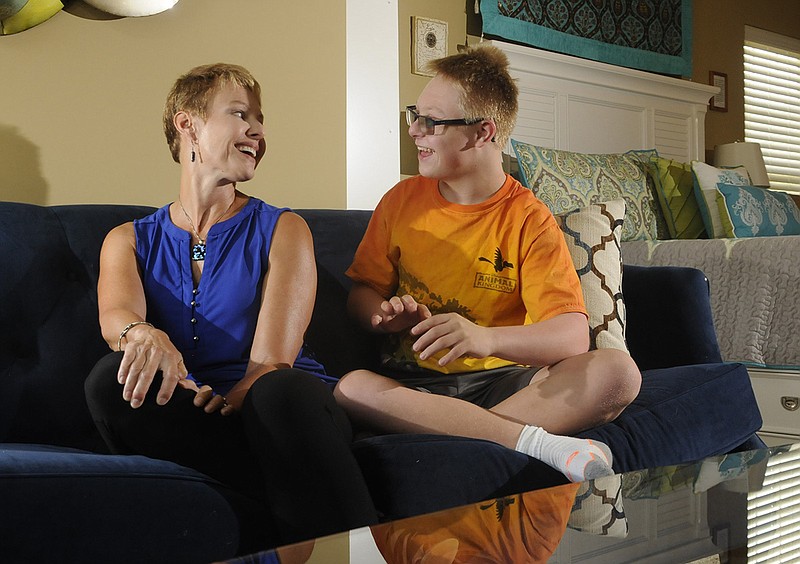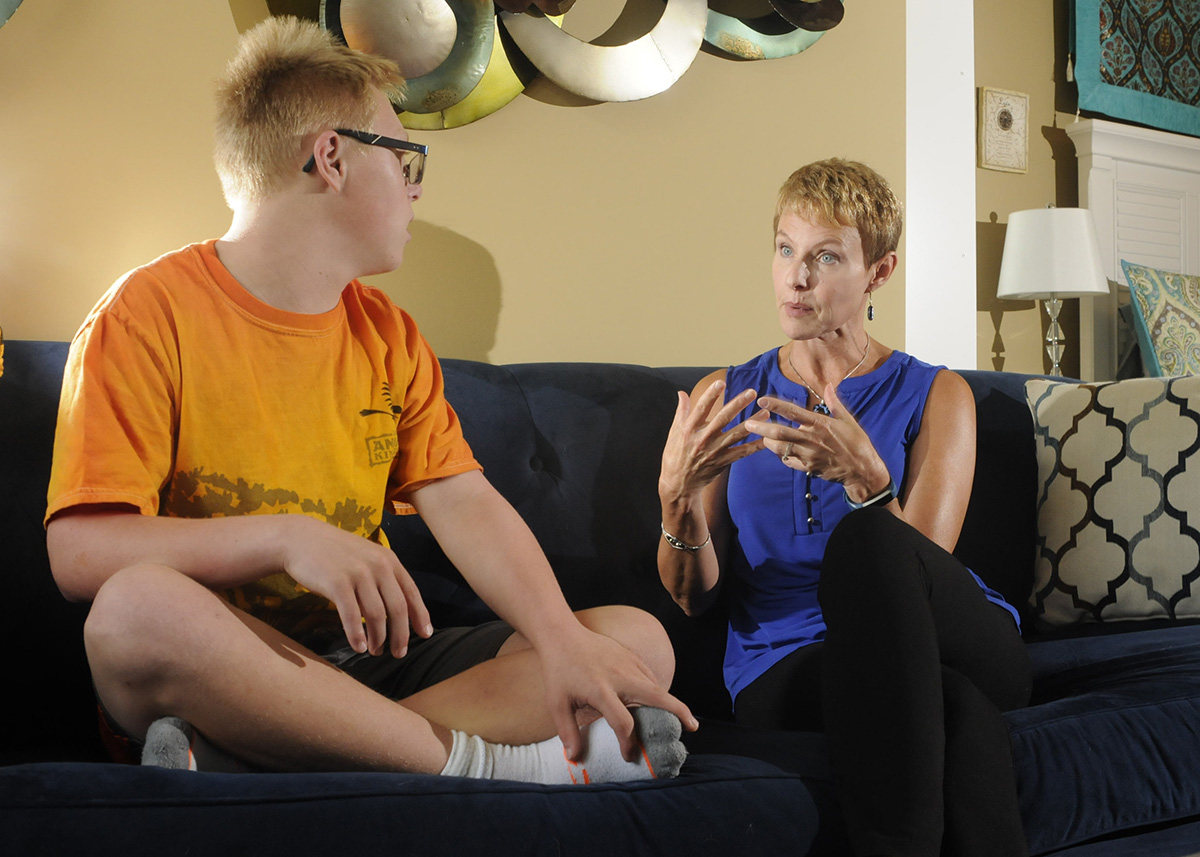For the last five years, Luka Hyde's family has argued in multiple federal courts that their 15-year-old son should have been allowed to stay in a public school classroom, despite his intellectual disability.
On Monday, the 6th Circuit Court of Appeals handed them a major victory that will have a broad effect on student disabilities rights in Tennessee, Michigan, Kentucky and Ohio.
"Throughout history, the stain of unnecessary segregation has been overcome through the law. I am tremendously proud of this contribution, and a little boy - now young man - named LH," said the family's attorney, Justin Gilbert. "The law of Tennessee, Michigan, Kentucky and Ohio will bear his name, reminding us all that kids with intellectual disabilities belong. They are to be included. And we are all the better for it."
Sixth U.S. Circuit Court of Appeals Judge Alice Batchelder ruled Monday that Hamilton County Schools violated a federal guideline that protects students with disabilities when it sent then-second-grader Hyde to a Red Bank Elementary comprehensive development classroom in 2013, where he would spend half his days separated from general education students. Hyde has Down syndrome.
Batchelder's 25-page opinion dealt primarily with mainstreaming, which calls for students with disabilities to spend as much time as possible in regular classroom settings. She said the case, which came to her from Chattanooga's U.S. District Court, "is really an argument against 'mainstreaming' as a concept, because HCDE believes it is impossible, impractical or counterproductive."
She also noted if that "is truly HCDE's view, then it is worrisome, and inadvertently supports L.H.'s parents' experts' opinions that HCDE teachers and staff reject mainstreaming because they do not understand it, do not believe in it, and need extensive training on why it is valuable and how to do it."
Last July, in Chattanooga, U.S. District Judge Judge Curtis Collier ruled the school district violated the Americans with Disabilities Act and Section 504 of the Rehabilitation Act, a federal civil rights law prohibiting discrimination against individuals with disabilities, when it removed Hyde from Normal Park Elementary School in 2013. Hyde is now 15 years old and attends The Montessori School.
Batchelder and her colleagues upheld Collier's ruling, but reversed his decision that Luka Hyde's parents should not be reimbursed for the alternative education they have sought for him. Instead, it ordered there should be a local hearing to determine how much the family should be reimbursed for his education. Hyde's family says it has spent nearly $17,000 a year for the past five years.
When the federal circuit court heard arguments last month in Cincinnati, school district attorneys said officials were acting in Luka's best interest by placing him in an appropriate environment.
"On the placement issue, the Court deferred heavily to Judge Collier's findings. While we respectfully believe that both courts misunderstood the teachers' concerns about how best to educate this child, HCDE will of course work to carry out this decision for the good of this child and all children in Hamilton County," school district attorney Scott Bennett said in a statement. "We would note that the Board of Education and Dr. [Bryan] Johnson's administration have already taken steps to make the special education program more inclusive."
Recently, the district and partner organizations have developed a plan that calls for the end of comprehensive development classrooms, allowing students to attend their zoned schools or schools of choice, as well as improving communication among the district, families and caregivers of students with disabilities.
When that plan was presented to the Hamilton County school board in July, Deborah Rausch, Hyde's mother, said it was ironic the district was still fighting the case. Rausch said all along as a parent and a taxpayer she asked herself why the district was continuing to spend money fighting the case.
"Why is our school system doing this? We weren't asking for any other service that isn't already provided to every other student. We didn't change case law. We weren't asking for anything unusual," she said. "I'm so pleased to see how much the school system has changed."
The district has 14 days to file for a rehearing if it decides to do so. A rehearing could be based on the need for further clarification or understanding of certain parts of a ruling.
Contact staff writer Meghan Mangrum at mmangrum@timesfreepress.com or 423-757-6592. Follow her on Twitter @memangrum.


